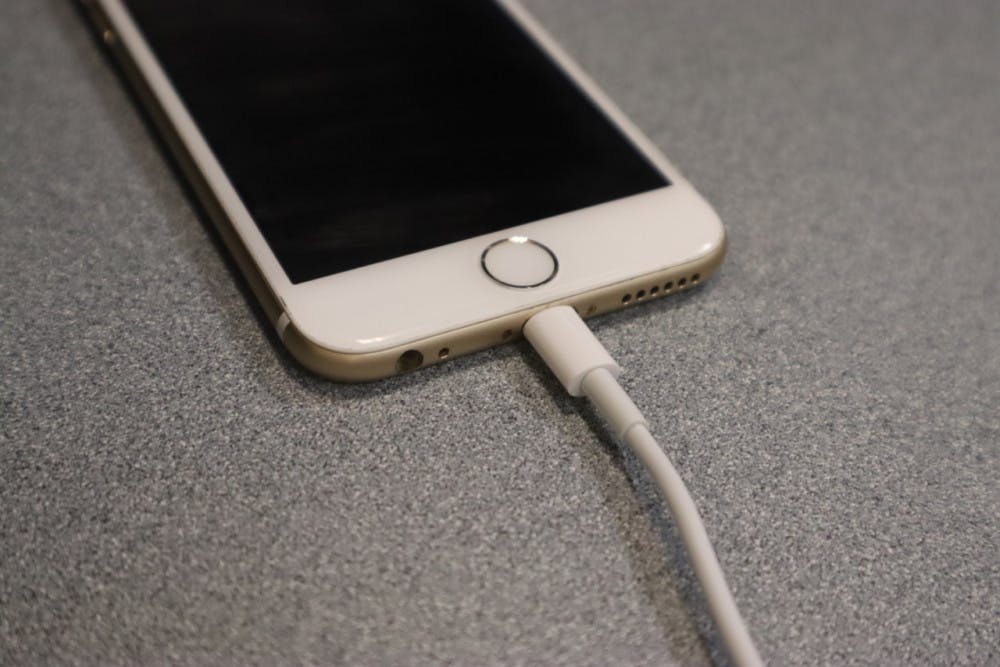UF researchers say a smartphone can be hacked by something as easy as plugging it into a charger.
Data on smartphones can be accessed by hackers through USB cables, like phone chargers, researchers at UF’s Florida Institute for Cybersecurity Research discovered. The 11-person team conducted research on 14 smartphones from six vendors, including Apple and Android phones, to see how hacking occurs and how to prevent it, said Grant Hernandez, a 25-year-old fourth-year UF computer engineering Ph.D. student.
Hackers send commands to phones to do almost anything they want, even if a phone is locked, to access emails, pictures and contacts, control screens or reprogram phones, said Joseph Choi, a fourth-year UF computer science graduate student and researcher.
Installing security patches and backing up pictures, contacts and documents can help protect smartphones. If users think their phones have been hacked, they should perform a factory reset, Choi, 24, said.
Most of the team’s funding comes from the National Science Foundation. UF is the only university currently working on this research project, Choi said.
The idea for the research came from sixth-year UF computer and information science and engineering doctoral student Dave Tian’s 2017 summer internship at Samsung in California, he said. In 2016, Samsung learned that three hacking commands could be sent through phone chargers and other USB cables. Tian, 34, said he wanted to extend this research to other brands and explore what other commands could be transferred.
At least 3,500 commands are transferable from a USB, Tian said. Smartphone hacking can happen virtually anywhere.
Sometimes, it’s clear a phone has been hacked, like when pictures are deleted, but many commands aren’t as visible, Tian said. People may not realize their information has been compromised.
Older phones are more vulnerable to hacking, but new models are also at risk. To protect smartphone data, it’s recommended not to charge phones with random charging ports, Tian said.
“We joke that the best way to prevent hacking is to never charge your phone and to just keep buying new ones,” Tian said.






